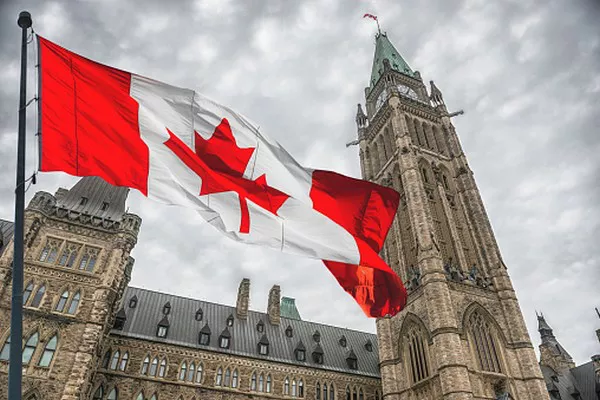Canada Day, celebrated annually on July 1st, is a significant national holiday that marks the anniversary of the confederation of Canada. It is a day of patriotic pride, festivities, and reflection on the history and achievements of the nation. Understanding the origins and evolution of Canada Day provides insight into the country’s cultural identity and its journey toward becoming the modern nation it is today.
Pre-Confederation Roots
The roots of Canada Day can be traced back to events that occurred before the confederation of Canada as a nation. These events laid the groundwork for the eventual unification of the Canadian provinces into a single dominion under the British Empire.
Early Settlement and Exploration
Canada’s history begins long before the establishment of the confederation. Indigenous peoples have inhabited the land now known as Canada for thousands of years, with distinct cultures and societies flourishing across the vast landscape. European exploration and colonization began in the 15th century, with figures such as Jacques Cartier exploring the eastern shores of Canada in the 16th century.
British and French Colonial Era
During the 17th and 18th centuries, Canada became a focal point of competition between the British and French empires. The French established colonies in Quebec and Acadia, while the British expanded their presence in Nova Scotia and Newfoundland. The Seven Years’ War (1756-1763) resulted in British control over most of present-day Canada, setting the stage for significant political and cultural developments.
Confederation and the Birth of Canada
The path to confederation, the process of uniting the British North American colonies into a single dominion, was a gradual and complex journey marked by political negotiations, cultural identities, and regional interests.
Charlottetown Conference
In September 1864, political leaders from the colonies of Canada (Ontario and Quebec), New Brunswick, and Nova Scotia gathered in Charlottetown, Prince Edward Island, to discuss a union of the colonies. This meeting laid the foundation for future discussions on confederation.
Quebec Conference
Following the Charlottetown Conference, delegates reconvened in Quebec City in October 1864 to further refine the terms of confederation. Key agreements included the division of powers between the federal and provincial governments and the establishment of a parliamentary system based on the British model.
London Conference and Confederation
The final steps toward confederation involved negotiations in London, where the British North America Act (now known as the Constitution Act, 1867) was drafted and passed by the British Parliament. On July 1, 1867, the Dominion of Canada was officially created, uniting the provinces of Ontario, Quebec, New Brunswick, and Nova Scotia into a federal union under the British Crown.
Early Celebrations and Recognition
Dominion Day
Initially known as Dominion Day, July 1st was designated as a national holiday to commemorate the formation of Canada as a dominion within the British Empire. Early celebrations included public events such as parades, fireworks, and cultural performances that highlighted Canadian identity and unity.
Evolution of Celebrations
Over the years, Canada Day celebrations evolved to reflect the changing cultural and political landscape of the country. The emphasis on Canadian nationalism, multiculturalism, and indigenous heritage became integral parts of the festivities, with events that showcase Canada’s diverse traditions, arts, and achievements.
Official Recognition and Modern Traditions
Official Recognition
In 1982, Canada Day received official recognition with the passage of the Canada Act by the British Parliament, which patriated the Canadian Constitution and granted Canada full sovereignty. This milestone solidified July 1st as a statutory holiday celebrated nationwide, reinforcing its significance as a symbol of Canadian unity and independence.
Modern Traditions
Today, Canada Day is celebrated across the country with a wide range of activities and events that bring communities together in a spirit of camaraderie and pride. Festivities often include citizenship ceremonies, concerts, outdoor festivities, sporting events, and culinary celebrations that highlight Canadian cuisine and traditions.
Reflection and Continuity
Canada Day serves as a time for Canadians to reflect on the country’s history, values, and achievements while looking forward to the future. It is a day to recognize the contributions of indigenous peoples, immigrants, and diverse communities that enrich the cultural tapestry of Canada.
Indigenous Perspectives
In recent years, there has been a growing emphasis on recognizing and honoring indigenous perspectives on Canada Day. Many communities incorporate indigenous ceremonies, art exhibitions, and educational activities that promote understanding and reconciliation.
Global Reach
Beyond Canada’s borders, Canada Day is celebrated by Canadians living abroad and international communities that share a connection with Canada through cultural exchanges, diplomatic relations, and shared values of democracy, human rights, and diversity.
See also: Why Is The Quebec Winter Carnival Celebrated
Conclusion
Canada Day represents more than a historical milestone; it embodies the spirit of resilience, diversity, and unity that defines Canada as a nation. From its origins in confederation to its modern-day celebrations, Canada Day continues to evolve as a reflection of the country’s dynamic identity and aspirations. As Canadians gather each year to commemorate July 1st, they celebrate not only their shared heritage but also their collective vision for a brighter future.

